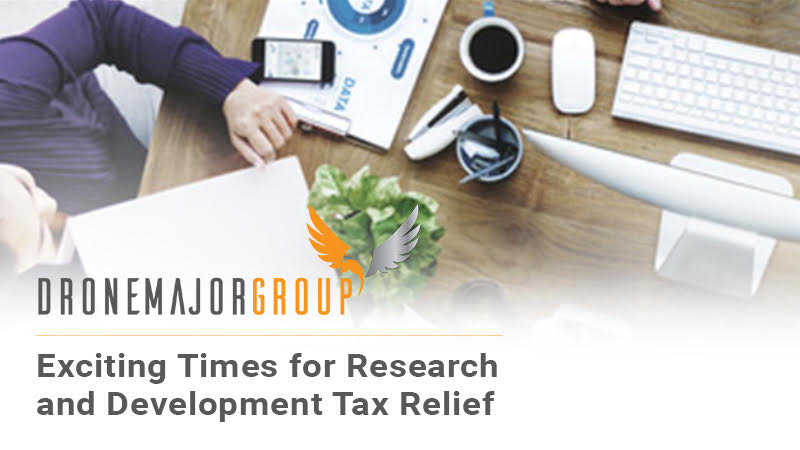Drone Major introduces significant client to Drone Evolution
Words By: Drone Major
Editorial Feature
Words By: R & D Consulting
"Exciting times" and "Research and Development Tax Relief" are not usually terms you will see used together but this is what we are heading towards.
Research and Development Tax Relief (RDTR) was introduced in 2000 and a lot has changed since the early days.
R&D Consulting was formed in 2012 as, at that time, the relief was being largely ignored by companies unless they were with one of the big accountants. It was just too complex and most companies who could have claimed assumed it didn’t apply to them. Back then, there wasn’t a lot of advice for companies when it came to RDTR and for about 5 years we gently educated companies and accountants – helping a lot of companies claim RDTR and helping others understand that although they were undertaking research and development, they didn’t meet the criteria for RDTR.

Then the landscape started changing and an abundance of R&D advisors emerged, poorly equipped to offer advice on RDTR but offering it none-the-less. This is when our role in advising companies when they DON’T qualify became so much more important. We don’t make any money doing this but we have stopped hundreds of companies exposing themselves to penalties which may not have become apparent until years later.
As HMRC do not check most R&D claims, the failings of poor R&D advisors have mainly gone unnoticed, but the knock-on effect hasn’t. HMRC are fully aware that a large percentage of claims submitted shouldn’t have been and funds are being given to companies which aren’t entitled to claim them. HMRC are taking steps to address these issues -it has employed and trained more staff so that more claims can be checked, and upcoming legislative changes will mean that it will be easier to spot the advisors causing these problems.
This is wonderful news but a lot of poorly advised companies will soon be facing the ramifications of placing their trust in the wrong advisor. It is going to get worse before it gets better as HMRC take longer to scrutinise claims, payments to eligible companies are delayed, enquiries are opened meaning more companies must defend their claims, and penalties are issued to claiming companies and their advisors.
At the end of this though, RDTR will hopefully be as it should be – the right companies claiming the right amount under the right scheme.